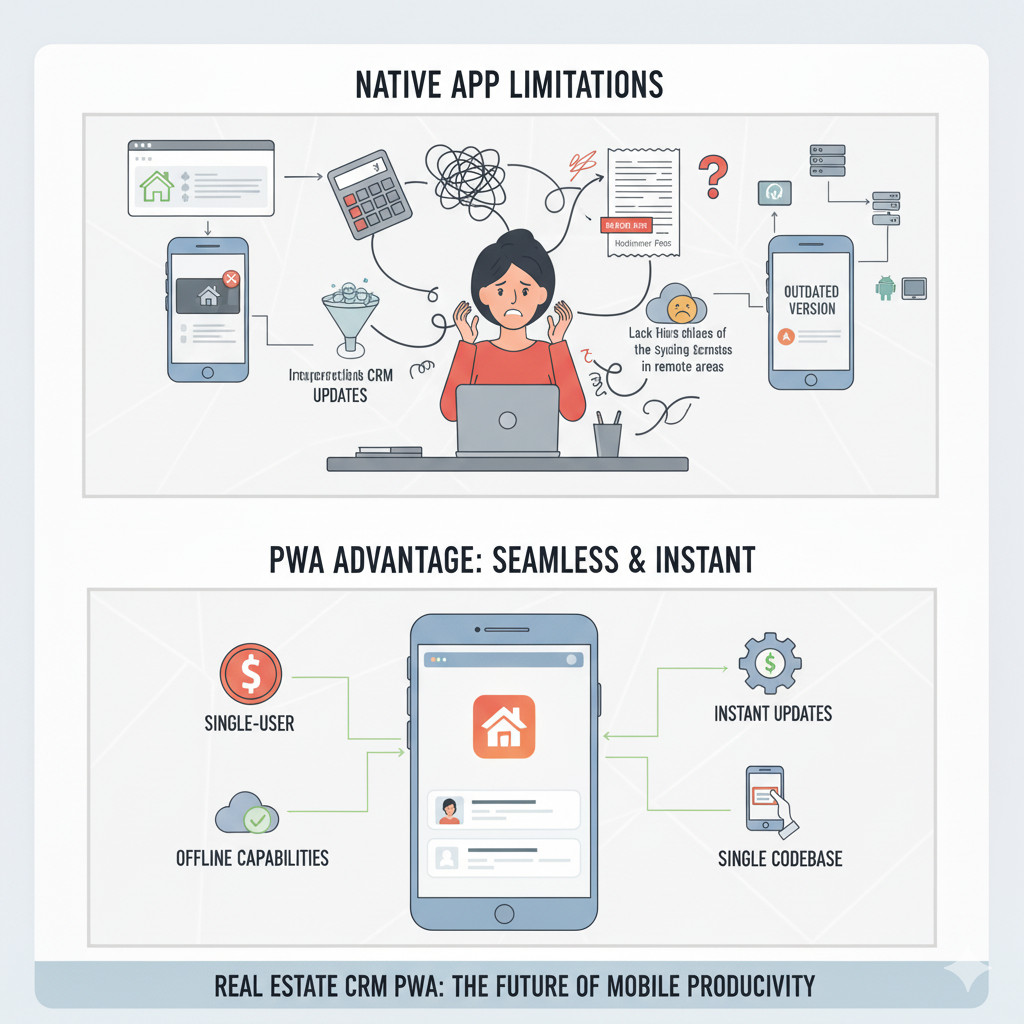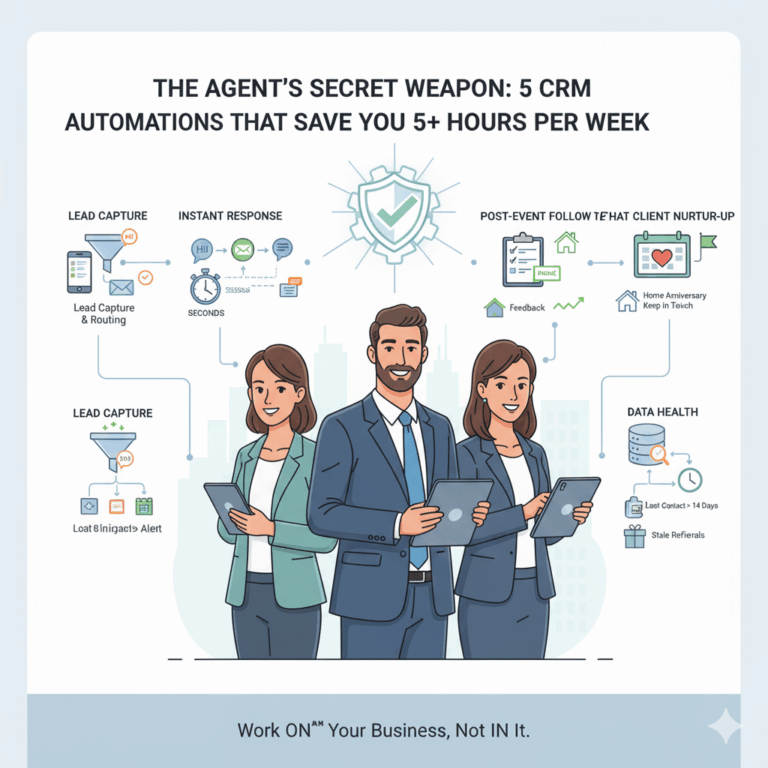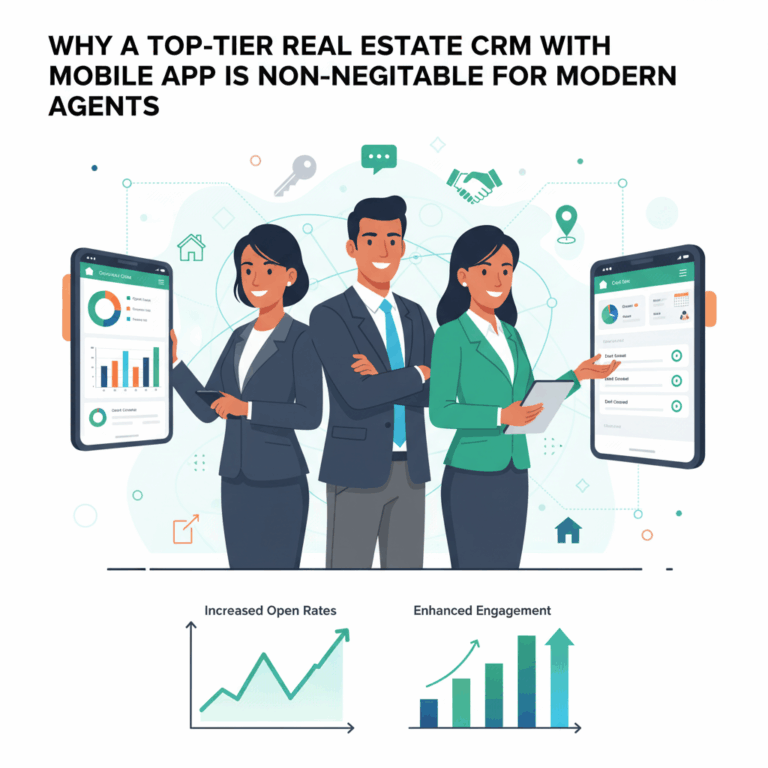Real Estate CRM PWA: The Progressive Web App Advantage Over Native Apps
In the rapidly evolving digital landscape of property sales, agents require tools that are as fast, reliable, and available as their smartphones. While many vendors still push traditional native apps (which require constant downloads and updates from the App Store), the future of productivity lies in a highly advanced, web-based structure: the Progressive Web App (PWA). Adopting a real estate CRM PWA is the key to unlocking seamless mobile performance, eliminating administrative friction, and ensuring your entire office is truly available in your pocket.
A real estate CRM PWA is essentially a website built using modern technology that allows it to function and feel exactly like a native application. It runs through the browser but offers features previously limited to dedicated apps, such as offline access, instant loading, and the ability to be saved directly to your home screen. This technology solves the historical pain points of both clunky mobile websites and fragmented native apps, offering the best of both worlds for the agent constantly on the go.
What Defines a Real Estate CRM PWA?
The shift to a real estate CRM PWA is driven by three core characteristics that directly improve the agent’s workflow, especially in a fast-paced environment like the Australian property market. Understanding these concepts is essential when evaluating a new platform.
1. Offline Capabilities (The Service Worker)
The biggest drawback of a traditional mobile website is its complete dependence on an active internet connection. If you lose signal at a property inspection, your data entry stops. PWAs solve this using a technology called a Service Worker.
- How it Works: The Service Worker is a script that runs in the background of the browser, acting as an intermediary between the network and the application. It caches essential assets (like the layout and client data) locally on your device.
- Agent Benefit: This allows agents to log calls, take notes, and update contact statuses even when they are completely offline. The data is queued securely and synchronizes automatically the moment the agent reconnects to a stable network, protecting against data loss and ensuring continuous productivity.
2. Speed and Reliability (Instant Loading)
Native apps often feel fast after they load, but the initial launch can be slow. Mobile-optimized websites, while accessible, often require re-downloading elements every time. A PWA eliminates this drag.
- App Shell Model: A PWA loads its basic structure (the ‘shell’) instantly, even before content arrives. This means the agent sees the interface immediately, improving perceived speed.
- Optimized Performance: Once assets are cached by the Service Worker, the PWA loads near-instantly on repeat visits, mirroring the snappy experience of a dedicated native app but requiring far less processing power.
3. Native Experience (Home Screen & Full Screen)
Despite being accessed via a browser URL, a quality real estate CRM PWA delivers a seamless, native feel.
- Home Screen Installation: Users can add the CRM directly to their phone or tablet’s home screen. The icon looks and acts exactly like a native app.
- Full-Screen Mode: Once launched, the PWA runs in full-screen mode, eliminating the browser address bar and buttons. This removes visual clutter and gives the agent an immersive experience, minimizing distractions.
- Push Notifications: Like native apps, PWAs can be configured to send instant push notifications for critical alerts, such as new hot leads or imminent contract deadlines.
Why PWAs Are Superior to Native Apps for Real Estate
For the real estate industry, the PWA structure addresses specific functional and operational challenges better than a traditional app store model.
1. Zero Friction for Updates and Features
Native apps require the user to manually visit the App Store to download updates. If an agent delays the update, they are running outdated software, leading to compatibility issues and security risks. With a PWA, updates are silent and automatic. Every time an agent opens the PWA, they are instantly accessing the latest version. This speed of deployment is crucial for regulatory compliance updates and immediate bug fixes. As we discussed in the guide to <a href=”https://www.google.com/search?q=https://www.agentai.com.au/mobile-optimized-crm/”>mobile-optimized CRMs</a>, consistency is key.
2. Lower Development and Maintenance Cost
For the vendor (and ultimately, the customer), maintaining a single PWA codebase is exponentially cheaper and faster than maintaining separate code for iOS, Android, and the web. This cost-saving is passed directly to the agent in the form of lower subscription fees and faster feature rollout. This contrasts sharply with legacy systems, which often feel clunky because the developer is forced to split resources between three platforms, as detailed in our analysis of the <a href=”https://www.google.com/search?q=https://www.agentai.com.au/agent-ai-crm-australian-agents/”>Agent AI CRM for Australian agents</a> case study.
3. Superior Security and Data Integrity
A PWA operates entirely over HTTPS, ensuring all data transmitted between the agent’s device and the server is encrypted. Furthermore, the single codebase enhances <a href=”https://www.google.com/search?q=https://www.agentai.com.au/crm-data-cleanliness/”>data cleanliness</a> because there is only one API endpoint for data entry, eliminating the common fragmentation errors that occur when data is logged across disparate native apps.

Making the Transition: PWA Adoption and Your Workflow
Migrating to a real estate CRM PWA is a move toward a more resilient and efficient workflow. Here is how it impacts your daily business:
1. Simplified Onboarding
Onboarding a new agent or assistant becomes effortless. There are no software downloads, no app store credentials to manage, and no different versions between devices. You simply send the agent a URL and instruct them to “Add to Home Screen.”
2. Enhanced Data Collection in the Field
The offline capability is a game-changer for regional agents or those working in new construction where signal strength is unreliable. The ability to trust that their data is safe and will sync later frees the agent to focus entirely on the client, rather than worrying about the phone signal strength.
3. Future-Proofing
The PWA model is supported and championed by major tech leaders (Google, Microsoft, Apple) as the future of web development. By adopting a real estate CRM PWA now, you are future-proofing your business against outdated app store restrictions and ensuring you always have access to the latest browser technologies as they evolve.
Conclusion: The Ultimate Mobile Solution
The choice between native apps and a real estate CRM PWA is clear for the modern, high-performing agent. While native apps offer deep integration with phone hardware, the PWA offers superior consistency, zero maintenance, instant updates, and guaranteed offline functionality across any device—all accessed with a simple URL.
The PWA structure transforms the mobile experience from a clunky compromise into a fully integrated, lightning-fast extension of your desktop office.
Google article about progressive web apps




